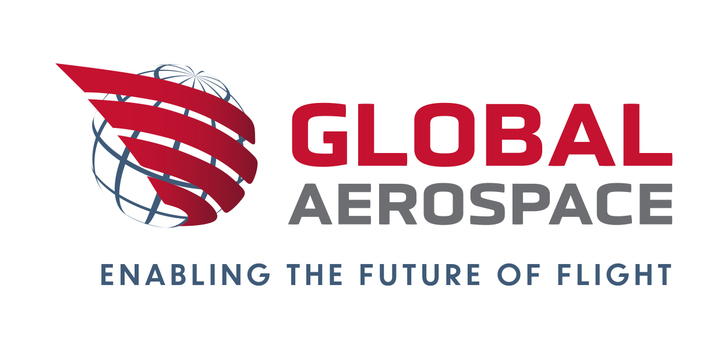In an era marked by increasing environmental consciousness and the imperative to mitigate climate change, the aviation industry finds itself in a rapidly evolving regulatory environment. Business aviation, in particular, has been subject to a wave of new policies and regulations focused on the .

Not only do existing schemes like CORSIA (Carbon Offsetting and Reduction Scheme for International Aviation) and the European and United Kingdom Emissions Trading Schemes (EU and U.K. ETS) add new responsibilities to operating internationally, but there have been numerous new local and national regulations, like the Portugal Carbon Tax, that will impact business aviation in the years ahead.
ETS and Smaller Operators
While CORSIA primarily impacts larger operators and few business aircraft operators will need to comply with it, the EU and U.K. ETS programs have lower activity thresholds that impact more international operators. Even if an operator is not based in Europe, flying frequently enough to, from, or within Europe can trigger reporting thresholds.
These thresholds are based on whether an operator is commercial or non-commercial, with lower thresholds for non-commercial operators. The countries and emissions included are constantly changing, and especially as flight activity grows, an operator’s eligibility can change from year to year.
Awareness of Country-Specific Programs Is Essential
These international programs are usually more familiar to operators; however, the last few years have seen the emergence of brand-new schemes that operators must also be prepared to comply with. France and Turkey have launched their own ETS programs that include aviation, and more schemes worldwide are looking at expanding their national ETS to include aviation. While these generally only apply to domestic flights in that country, they may still generate new monitoring requirements for operators based outside of those countries.
Another notable national mechanism is the Portugal Carbon Tax, which imposes levies on aviation fuel to internalize the social cost of carbon emissions. Additionally, it adds reporting requirements for flights departing from Portugal without a minimum threshold to trigger the obligation.
The tax is applied differently based on the size of an aircraft. For aircraft with fewer than 19 seats, the tax is a multiple of the number of available seats, the distance flown and a carbon factor. Unfortunately, the tax currently does not provide any benefit for using sustainable fuels or more fuel-efficient operating procedures.
Additionally, in Europe, the ReFuel EU Sustainable Aviation Fuel (SAF) Mandate is a well-discussed requirement for fuel suppliers to deliver SAF to larger “union” airports in the EU (airports with more than 800,000 annual passengers). While this does not impose a specific SAF use mandate for operators, those that pass a reporting threshold will have to report their fuel consumption information under ReFuel EU to prove that they are not tankering fuel to avoid buying SAF at these union airports. Using mandated fuel should still provide an emission reduction to operators that are uplifting at those airports, and the SAF should be able to be claimed as an emission reduction under the EU ETS.
Evolving Fuel Policy in the United States
The emerging policy has not been limited to Europe. In the United States, the proposed state of Washington private jet SAF mandate would require a minimum amount of SAF to be supplied to private aviation airports in the state. This is one of the first proposed mandates to use SAF in the U.S. and the first to target private aviation specifically.
Additional U.S. state policies are evolving to expand support for sustainable transportation fuels that mirror the Low Carbon Fuel Standard (LCFS) in place in California. New Mexico was the most recent state to pass a similar policy, while Oregon and Washington added LCFS programs to their states in prior years.
New states in the Midwest and on the East Coast are also looking at policies to incentivize the production and distribution of SAF. These types of programs help provide price stability and certainty to SAF production, indirectly benefiting end users of the fuel by lowering the cost and increasing the availability of SAF.
Illinois was the first state to introduce a SAF purchaser tax credit that would directly benefit fuel users. The tax credit applies against the use tax normally paid on fuel uplifted in Illinois for domestic U.S. flights. The tax credit will apply to air common carriers purchasing fuel within the state and should provide a new level of benefit certainty to using SAF.
This mix of production, distribution and use credits around SAF is resulting in a more complex supply chain, but one that, if applied correctly, significantly reduces the cost of using SAF.
Reading the Changing Regulatory Landscape
The regulatory landscape for business and private aviation is evolving rapidly due to new environmental-based regulations. Existing policies with activity thresholds still put the obligation on operators to monitor whether they pass those thresholds and report appropriately if they trigger a reporting responsibility.
New policies like ReFuel EU and the Portugal Carbon Tax introduce completely new activity thresholds or eliminate them, adding new layers of monitoring and reporting obligations for operators. Finally, introducing new subsidies and credits around the use of SAF implements reporting and documentation requirements but can provide cost savings or credits under various programs.
What is certain is that policymakers will continue to use a range of tools to incentivize emission reductions, support SAF and address aviation’s carbon footprint. At the same time, companies will launch and enhance initiatives supporting sustainability. Being prepared and monitoring an operation’s activity against all these existing and emerging new schemes will be critical to proficient and compliant operations in the future.
About Global Aerospace
Global Aerospace has a century of experience and powerful passion for providing aviation insurance solutions that protect industry stakeholders and empower the industry to thrive. With financial stability from a pool of the world’s foremost capital, we leverage innovative ideas, advanced technology and a powerful synergy among diverse team members to underwrite and process claims for the many risks our clients face. Headquartered in the UK, we have offices in Canada, France, Germany, Switzerland and throughout the United States. Learn more at https://www.global-aero.com/
Global Aerospace Media Contact
Suzanne Keneally
Vice President, Group Head of Communications
+1 973-490-8588
Website of Source: https://www.global-aero.com
Release ID: 999085

